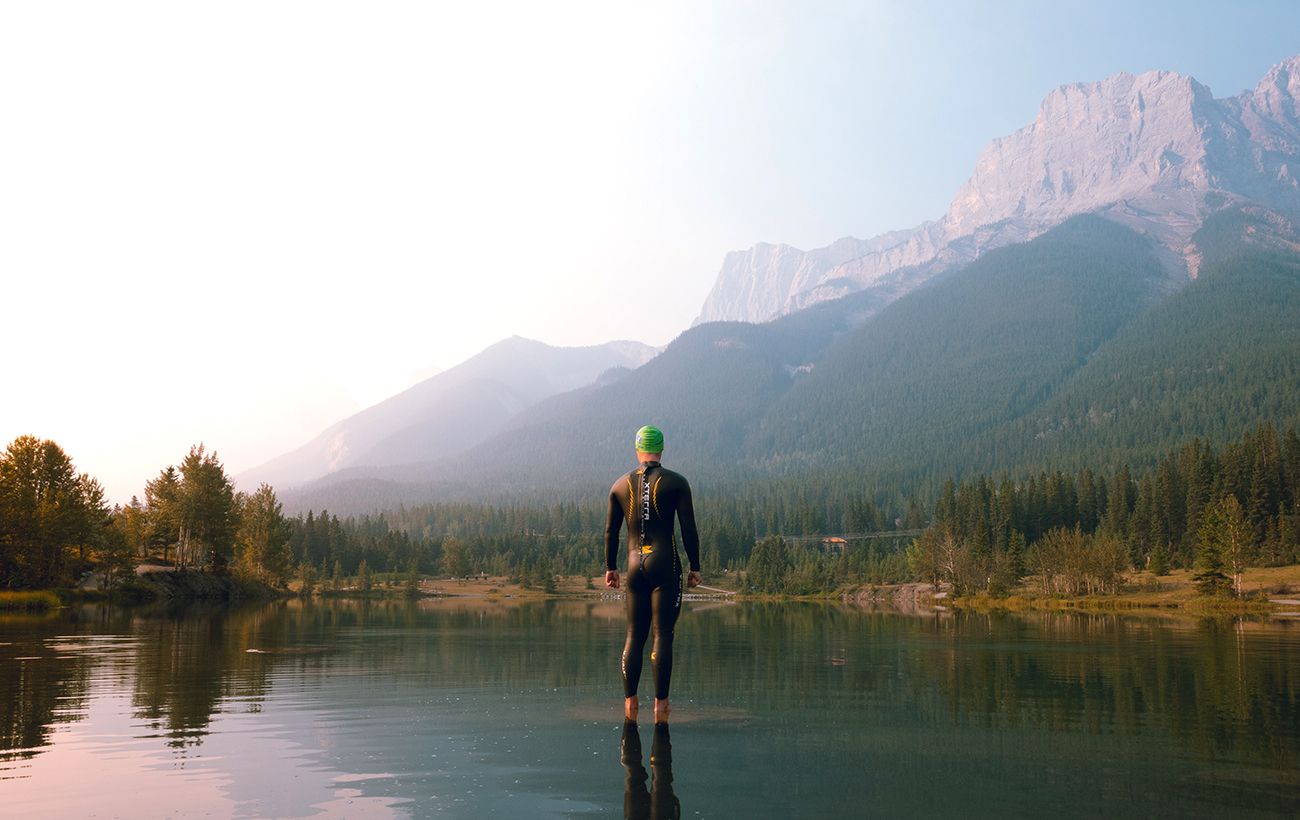Today we present the superpowers of Jose Miguel Ortega, IT manager at Stratio in the morning, and triathlon athlete in the afternoon. Yes, you read that right, the flexibility that remote work and Stratio’s trustworthy environment allow motivated him to go beyond systems and to take on an “Ironman” race, one of the greatest physical and mental efforts that a human being can undergo. Specifically, the Ironman European Championship in Hamburg.
It was a necessity for us to share this great challenge, therefore, we leave below the interview where he tells us the experience and tells us how he has achieved his dream. In Stratio, developing your skills or your own personal project is possible thanks to Blue Style. If you are interested in becoming Blue, take a look at our open positions.
If at the moment of finishing the race they put a microphone on me and asked me if I would recommend this, I would have said NO, it’s crazy!
José Miguel Ortega
Explain to us first what an Ironman race is
Ironman is a trademark, the correct name of the race is called long distance triathlon. It consists of a 3.8 km swim, 180.2 km bike and 42.2 km run (a marathon). It is divided into several categories, the elite takes between 8 and 9 hours, the “amateur” age groups are between 11 and 15 hours. We all compete at the same time but then the classifications are made according to your category. In my case I compete in my age group, between 40 and 45 years old.
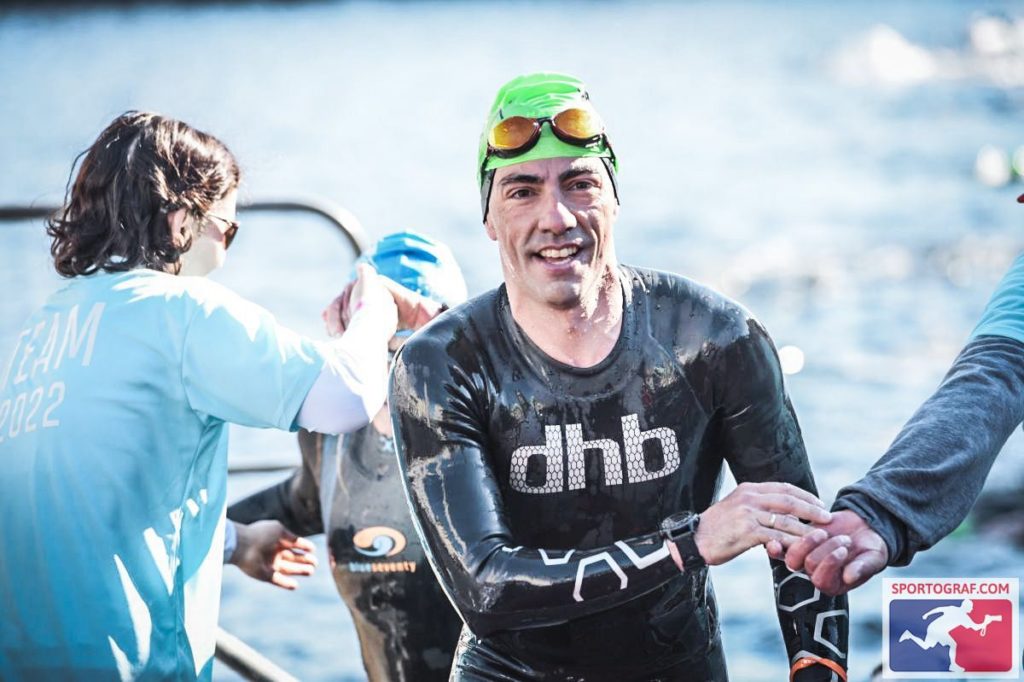
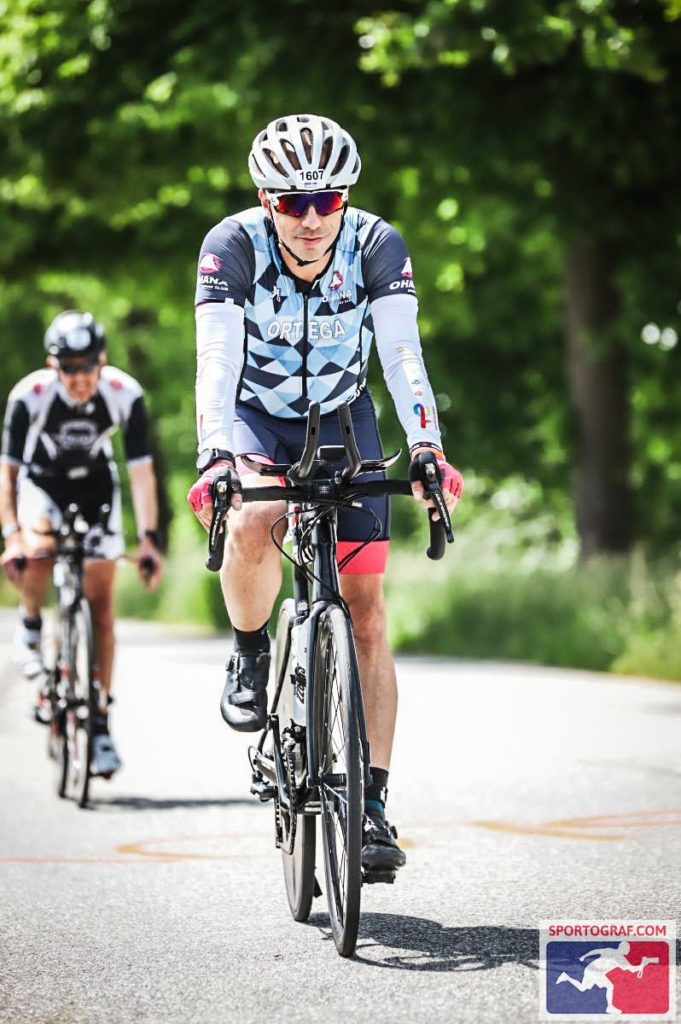
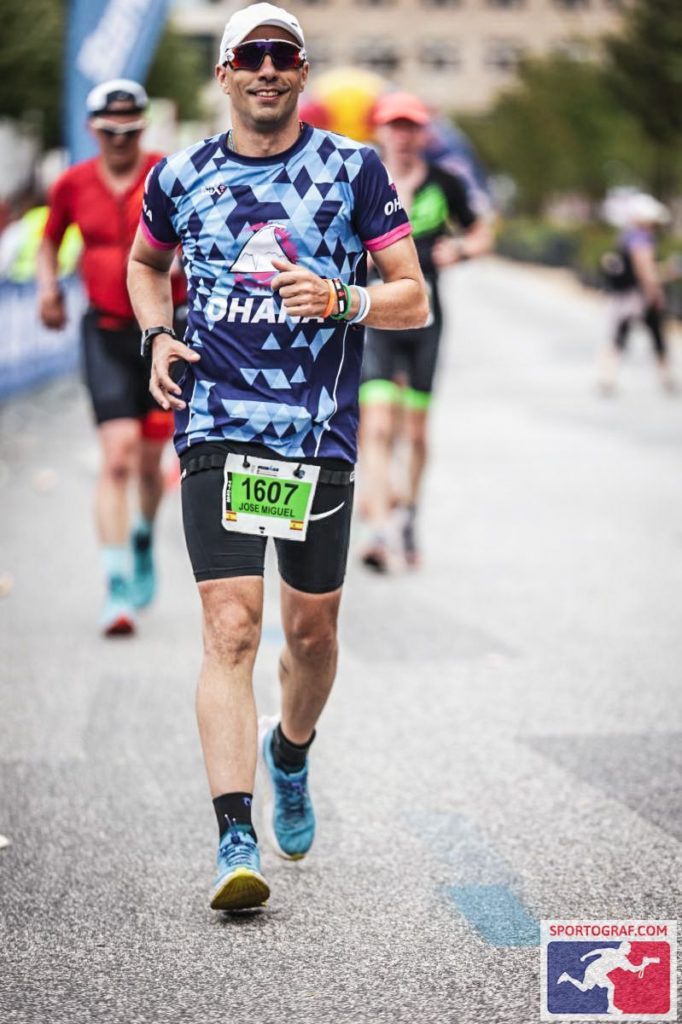
How did you decide to sign up and where did the idea come from?
The initial objective was born about 6 years ago, from a very serious injury I got in my knee playing soccer, rupture of the anterior cruciate ligament, internal lateral ligament and meniscus. It boils down to four surgeries in a year and a half and the doctors saying that I am going to be lame for the rest of my life. Faced with that verdict I respond in ”big head” mode: Not only am I not going to be lame but I’m going to try to do the hardest test I can think of, an Ironman.
This was born as an idea of self-improvement, but it was increased because that same year of the injury my mother, who was the person who supported me the most in the sport, also died. So, the decision to participate for the first time in a long distance triathlon was also born as a tribute to my mother.
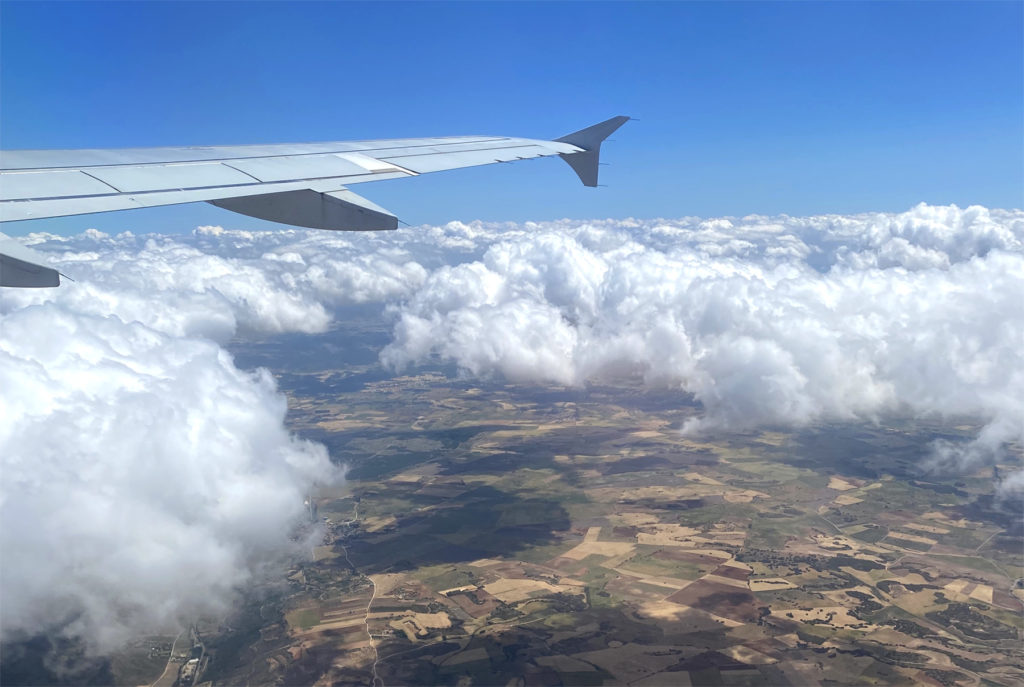
Tell us what the experience has been like and what has been your mark
Well, if at the moment of finishing the race they put a microphone on me and asked me if I would recommend this, I would have said NO, it’s crazy! It is suffering. I don’t have the feeling that I made a super achievement, but just another race. My wife is the one who reminds me that what I have done is extraordinary and unusual, so people congratulate me. On the one hand I think of all the time I have sacrificed in preparing for the race and then I see that it has flown by. I’m very happy, everything went according to plan, that’s what training is for.
11 hours, 49 minutes was my best time.
I suffered in the marathon, my stomach was closed and nothing was coming in. Every time I tried to eat or drink something I gagged, so I had to stop and walk about 1 km because I had no energy. The environment was so beautiful and there were so many people cheering that you keep going km by km. It also helped me a lot to remember my cousin and my mother, now deceased, who encouraged me a lot. The last km I felt no pain from all the emotion and with the sensitivity to the surface. When I arrived I felt an explosion of pride and I started to cry remembering my loved ones and the sacrifice I had made.
How long does it take you to recover and what is your next goal?
After 3 days I was already recovered, not to do a marathon but to go swimming. On the 12th I have a 10 km running race sponsored by Stratio. The following Saturday, on the 18th, I have another cycling race, one of the hardest in Europe, they call it the “quebrantahuesos” (laughs…).
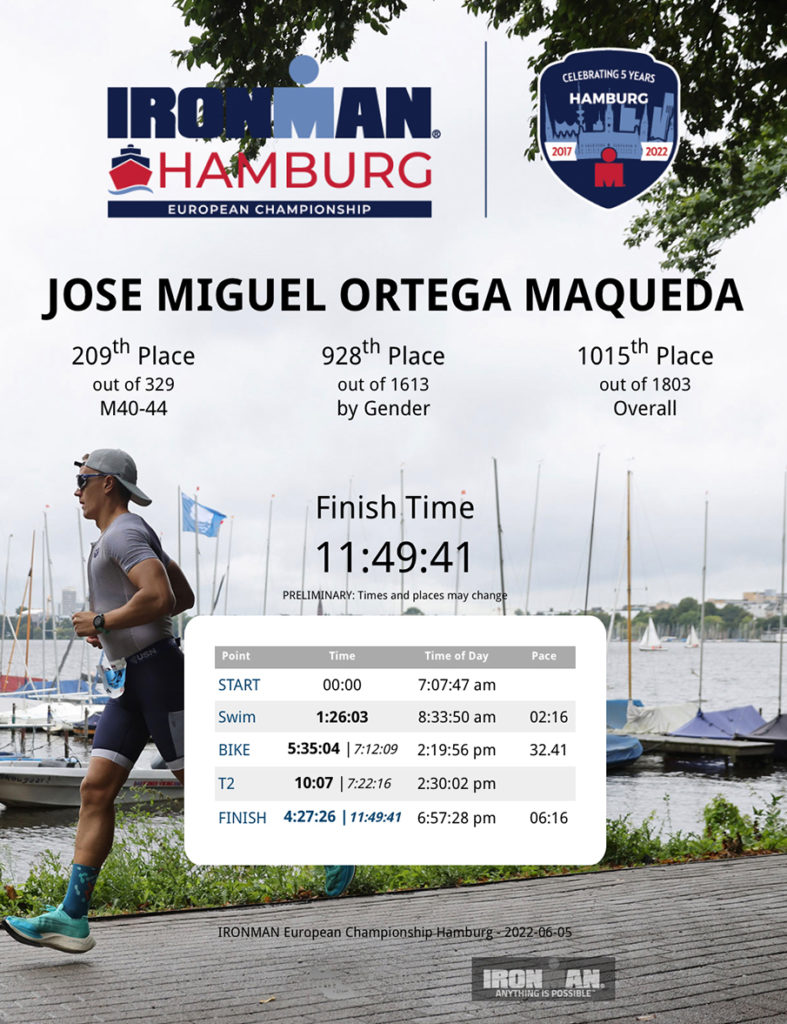
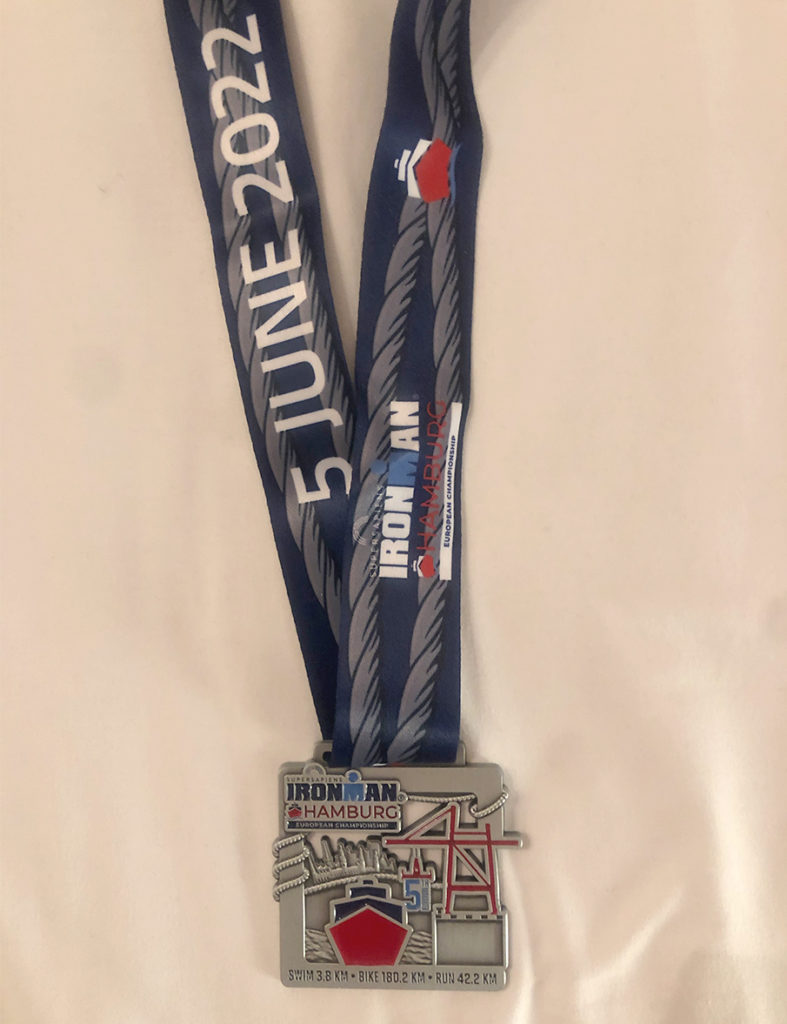
How did you start in this sport and why?
I have been a sporty person since I was a child, no matter the sport, I have played everything, basketball, volleyball … but what I have practiced most has been soccer. I have been federated in lower categories of important teams. I was also a motorcycling pilot but mainly soccer, until I suffered this injury in a match and I had to “hang up my boots”.
How has the sport helped you and how has it changed your life?
Definitely to have a healthy way of life. Having always done sports has made me reject alcohol, tobacco, etc… Going to bed early on weekends because on Saturday or Sunday you have a game in the morning doesn’t allow you to party much.
Also, since the injury, the contribution has been more psychological and motivational, of challenge and overcoming. I would probably be lame right now if I hadn’t insisted on doing this.
What was your day-to-day life like before the race?
The first thing is to clarify that this type of test requires many months of training to be able to finish the test and avoid physical problems. The last 8-10 months of my life I was training between 18-20 hours weekly. Training gives you a benchmark to know how far you can go by giving your best. The essential thing is that you need to have this time, so your work has to go according to the time you have available. In my case Stratio allows me to do it, and above all that your family agrees and supports you, because otherwise it would be very difficult.
How did you organize your training and what problems did you encounter on a daily basis?
As I said, I’m lucky to have a flexible working day at Stratio and I have been able to organize my work better to free up time, and above all I’m lucky to have a wonderful family, my wife and my two children. My wife is a very flexible person and she is the one who has covered for me in household chores such as taking the children to school and after-school activities. This frees me up for training.
In terms of organization, I have worked with a triathlon coach who sets the tone for me. I’m also a coach but it’s better to be scheduled by someone else to be more compliant.
Also nutrition is super important. You need to have a healthy, balanced diet that is adjusted to what you are spending, based on what you are training for. To have a nutritionist also helps.
What is the strangest thing that has happened to you in a race?
The hardest thing that has happened to me was in a triathlon in Pedrezuela, Madrid. It was freezing, it was raining, there was a thunderstorm and we had to go into the lake to swim. When we got out, frozen to death, it started to snow. It was the hardest conditions I have ever experienced. I had a hard time and I came to doubt the sense of it all.
Then, I also have many curiosities. Like meeting very particular people in the races, very old people of 70 or 75 years doing triathlons.
Very scatological anecdotes too, because obviously, they are very long races and there are people who have to stop doing their stuff and do not go and hide precisely…
I have seen people crawling into the finish line. Heat stroke, dehydration, hypoglycemia, especially in the water, which is the most anxious part of the race.
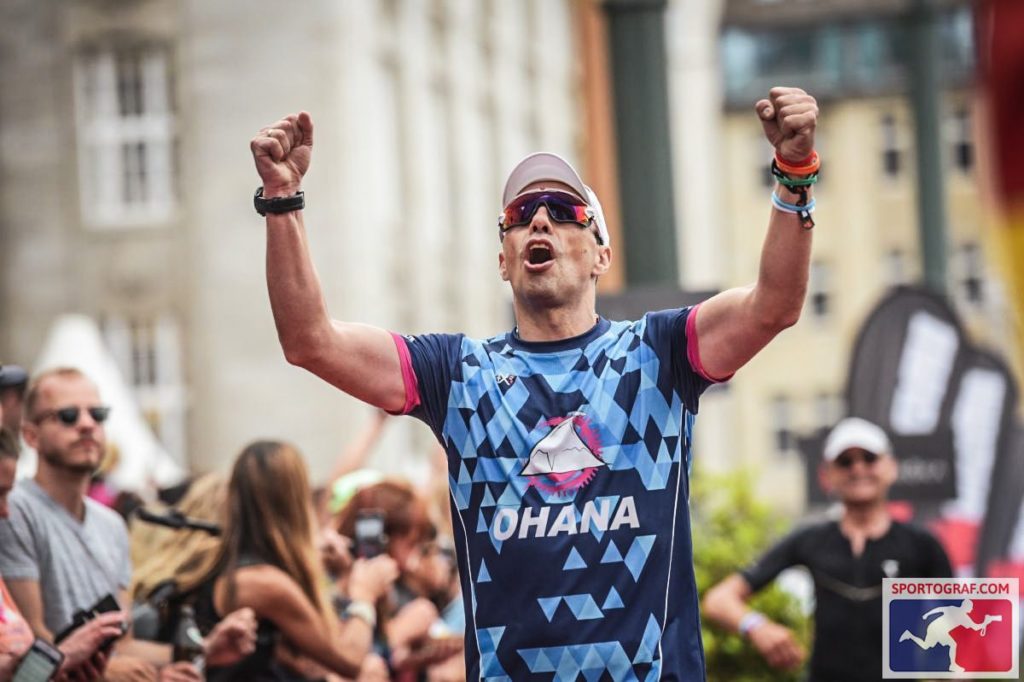
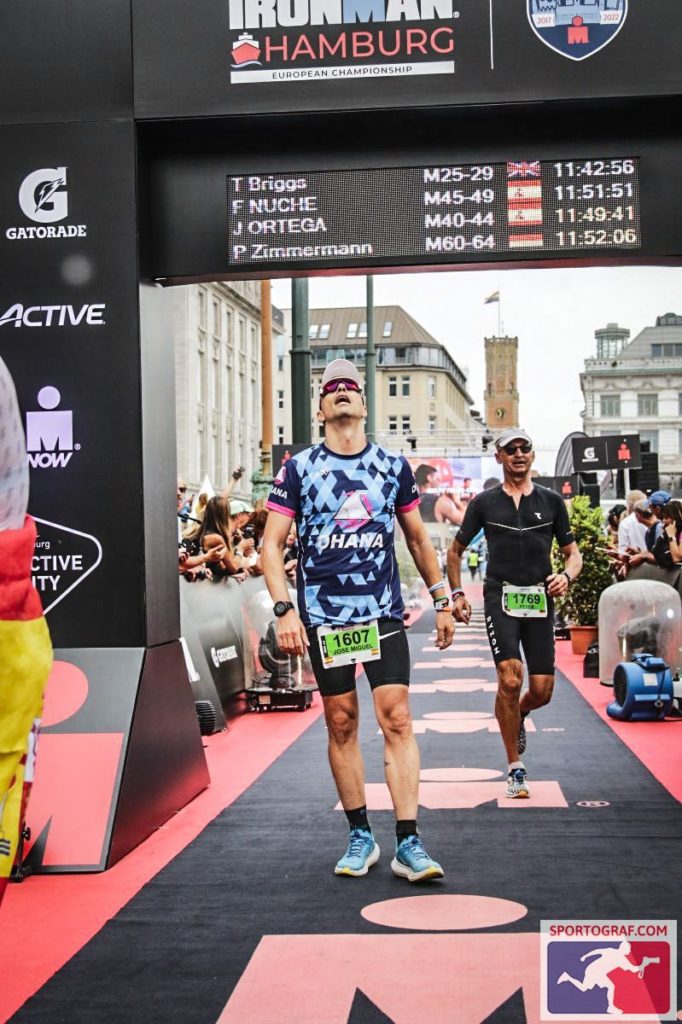
And did you feel like repeating?
Not only did I feel like doing it again, but I wanted to do it twice the distance. Endurance sport has an addictive component, when you finish training or competing you generate endorphins. Hormones that cause a lot of pleasure and satisfaction. When you finish you are euphoric and wanting to run again to have that feeling again. When you train you have a hard time but you know that the day you compete you are going to enjoy it.
Training gives you a benchmark to know how far you can go by giving your best.
Would you say that the sport has brought you benefits in other areas of your life, apart from health?
In all parts of my life: in the area of knowledge. For example, during the pandemic I took the opportunity to get my National Triathlon Coaching Degree.
On the social side, you meet hundreds of people with whom you share hobbies, people who are very like-minded and healthy. It gives you topics of conversation for the family, for work.
We’re prepared to be on fire and stay calm. You don’t get intimidated by pressure.
At the work level I have seen two common patterns. Resilience is one. We’re prepared to be on fire and stay calm. You don’t get intimidated by pressure. The other I call “the brain switch”. We have a facility to dissociate facets of life such as work, or personal. When we are training or working, we have the ability to concentrate to the maximum on what we are doing.
Obviously, this is trained. The important thing is to know how to manage it because there are times when it can even help to think about something else, for example in a very hard stage climbing a mountain pass.
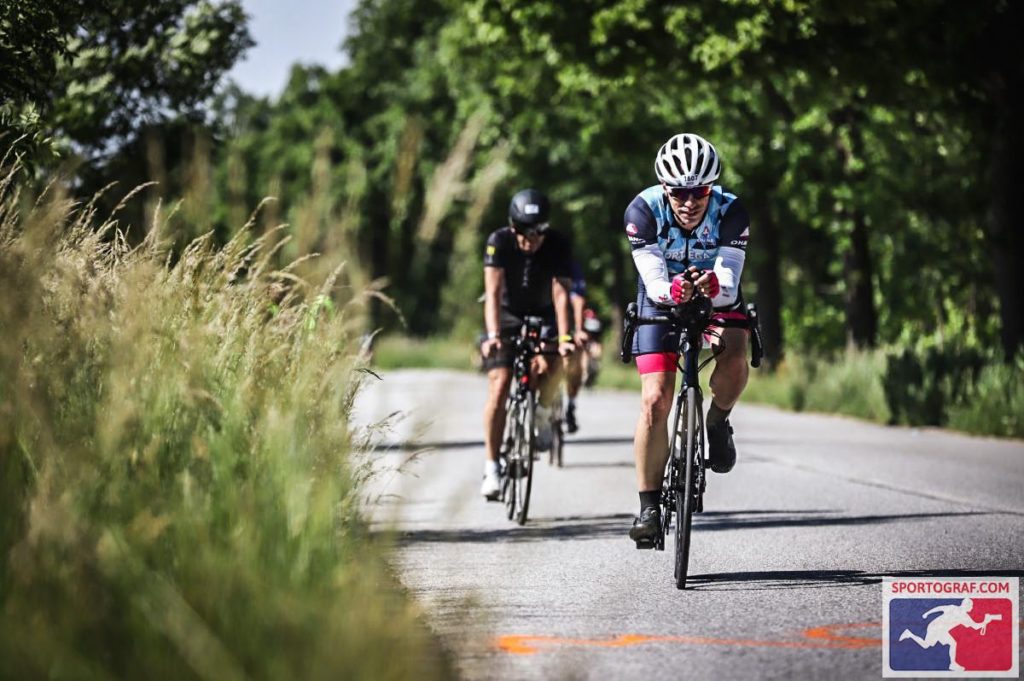
Do you think that working in other companies you could have trained enough to compete in the Ironman?
There is something inherent to the type of work I do, related to the IT world, and that is that it doesn’t require physical effort, which gives me physical margin to train.
And specifically with where I work, at Stratio, it has to do with schedules and responsibility. For example, it was better for me to go to the pool in the middle of the day and I was able to cut an hour off to train. Then I came home, had lunch and went online in the afternoon and continued working. Having this flexibility and ease of managing your work doesn’t happen in most companies. There are many that now offer you remote work but don’t offer you this schedule management. For me it is essential, basic and one of the pillars that makes me able to plan to train so many hours.
Sport changes your life and it is for everyone, there is no ideal age or physique.
Do you recommend the sport to everyone?
No doubts. Triathlon athletes are normal people and we have started running 1 km. Little by little you plan and set yourself bigger challenges. The most important thing is not to procrastinate and get into the routine to soon see the transformation that occurs at many levels.
I also recommend it to children because competition teaches you that you don’t always win, you can lose, come last, get injured and not finish a race. This will help them to handle frustration in their adult life. Sport changes your life and it is for everyone, there is no ideal age or physique.

Was it worth it?
Definitely. Competing in an Ironman event is something that is clearly worthwhile. You feel very proud of yourself and it gives you a great satisfaction to have achieved it.
Obviously, on the way, there are many days of pain, fatigue, physical and mental exhaustion. But perhaps, the most sacrificial days are the ones where you trade family time for training time.
In any case, I am really happy with both (the journey and the result). Even if I hadn’t finished the competition, I would also be very satisfied with everything I’ve done until I get to the starting line.
Do you think you will apply again?
No, at least not in the short term, it requires a lot of sacrifice, family above all, and right now I am not willing to sacrifice more. I wanted to prove to myself that I was capable of doing it and to overcome the injury I had. Doing another one is not going to bring me anything other than beating my record and I don’t find it motivating enough. Maybe in a few years when my children are older it could be.
What is certain is that I will continue training people because I like it and it gives me a lot of satisfaction. If anyone needs help to fulfill their sports dream, please contact me (laughs…).

